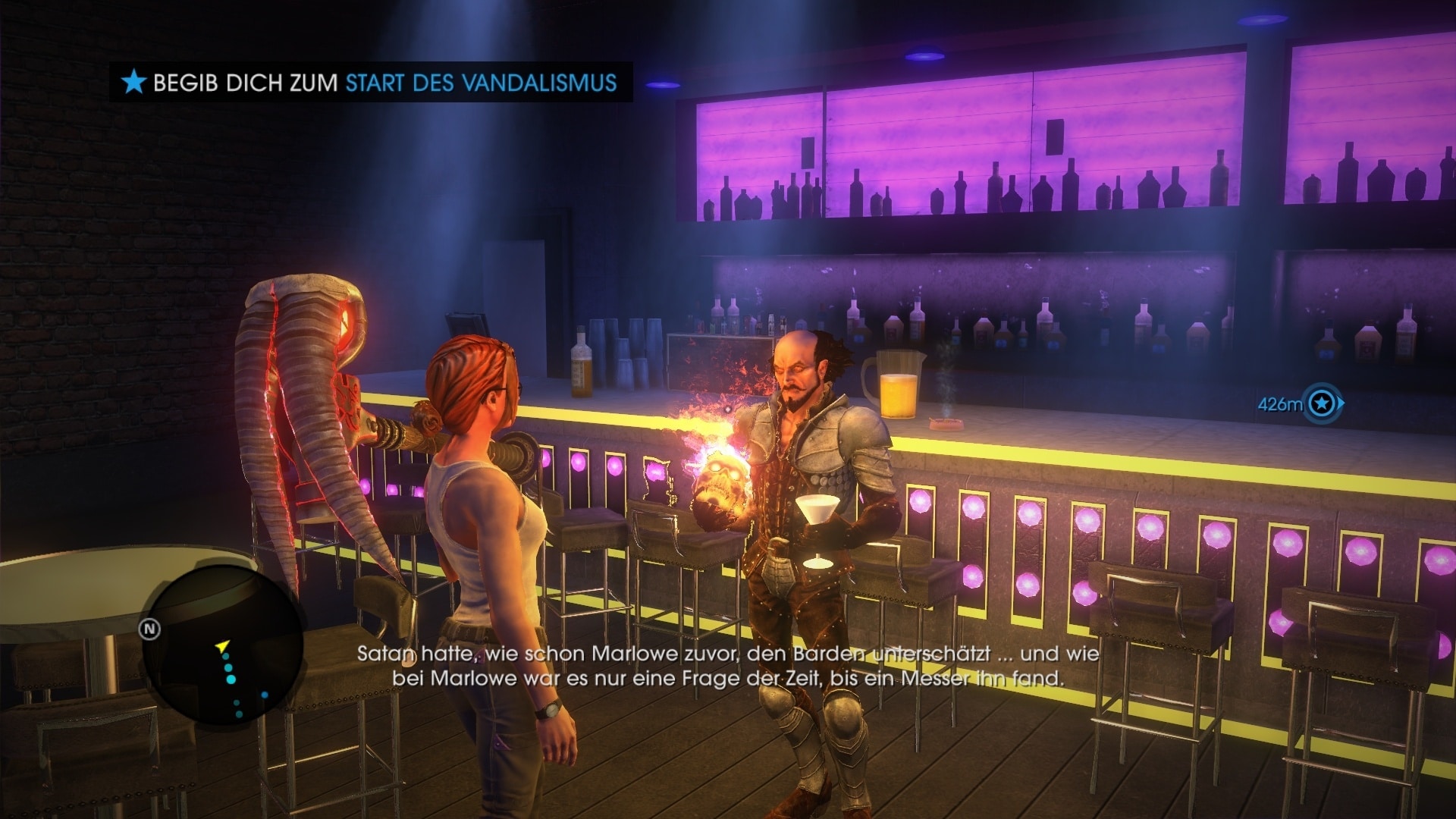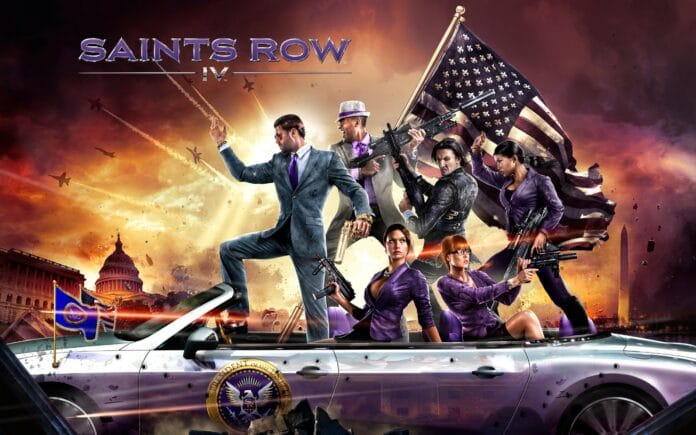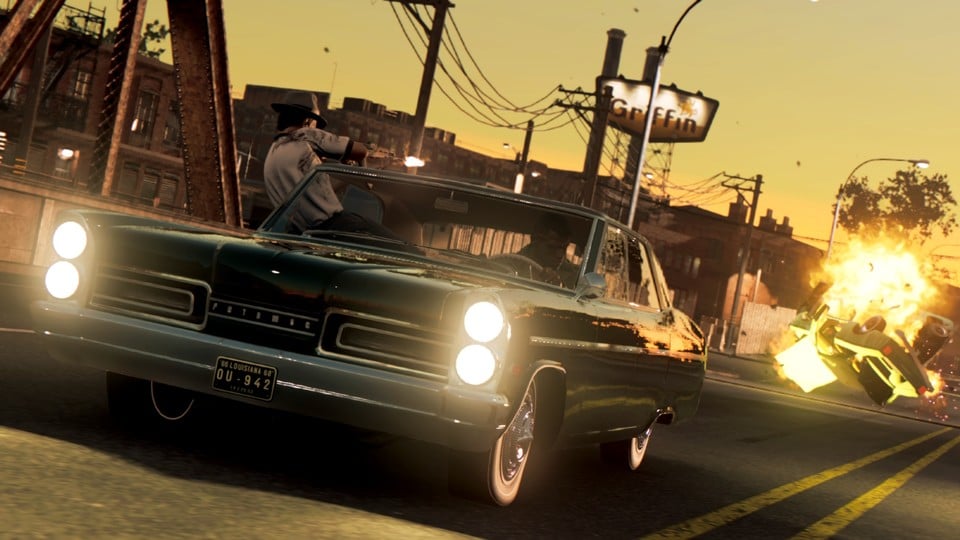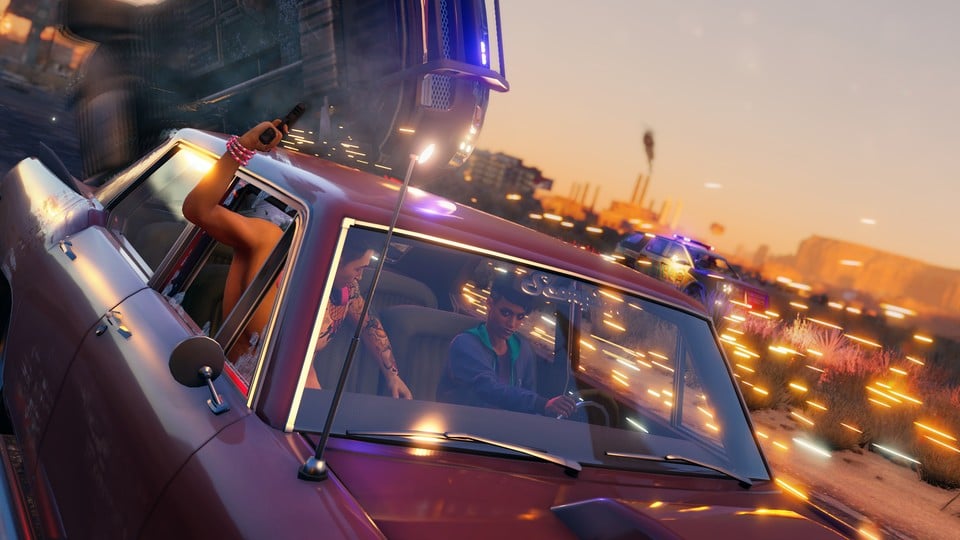The new Saints Row makes a crucial mistake: it doesn’t know what its target audience should be. In doing so, lessons could have been learned from other reboots.

You could almost feel a little sorry for the developers. Volition has been working for years on its reboot of Saints Row – and then the trailer for the game slips into YouTube’s downvoting hell. The video has now received 44,000 thumbs down, twice as many negative as positive feedbacks from the almost 800,000 viewers.
Well, you could say, that’s the danger when you announce games with a CGI trailer and people are hungry for gameplay. But even the developer video with first game scenes published shortly after the gamescom premiere didn’t fare much better: 17,000 “don’t like” clicks against 11,000 positive reactions, with 400,000 views.
The reasons for the disastrous response to the announcement must therefore lie deeper. I’ve pinpointed three major ways in which Saints Row disappoints or misjudges players’ expectations. And Volition could have easily avoided at least one of them by analysing previous reboots more closely. After all, the competition went about their business a lot more cleverly in previous series reboots.
By the way, we clarify basic questions about reboots in the big overview article:
Saints Row: All info on the big open-world reboot – and what we think of it
Point 1: Saints Row is in a quandary
What once began as an over-the-top gangster fantasy characterised by the developers not mincing words and going beyond the bounds of good taste for a joke has reached a level of lunacy with Saints Row: The Third and Saints Row 4 that defies description. But of course I’ll take a crack at it anyway:
In the last instalment of the series, you fought off an alien invasion by using superpowers in a virtual reality world. Finally, a time machine was used and in the spin-off Gat out of Hell you took on Lucifer himself. Volition faced an understandable dilemma: how to top that?

In this respect, it makes sense not to produce a sequel that picks up where the insane story left off, but to tell a new story with a reboot. Characters like Johnny Gat were effectively fleshed out, a further escalation of circumstances impossible. The Saints’ rise story had evolved into a “save the universe” plot. It would be difficult for any author to write meaningfully from this starting point.
But by returning to a grounded gangster story, Saints Row also faces a major problem: It seems ordinary. The announcement of the reboot causes little stir because it can too easily be mentally chalked up to “just another open world game”. The allure of open world games is widely known, but to what extent does Saints Row deliver here more than what we know from countless other genre representatives?
The series’ identity has always been tied to the absurd, the sky-scraping. We played Saints Row because it was so crazy, so creative and politically incorrect. In the reboot, Volition has so far failed to convey this aspect adequately. Yet other developers have shown how to do it better:
A Tomb Raider in 2016 focused on the portrayal of a young, naïve Lara, which also raised an exciting question for games of the predecessors: how does this girl develop into the tough adventurer from later parts of the series? Resident Evil 4 and 7 each brought a stark change of perspective that turned the horror series on its head. Much the same can be said of Fallout 3. God of War for the PS4 developed the familiar series formula in a whole new direction and was fantastic precisely because it wasn’t simply more of the same.
Saints Row, however, does not, on the face of it, have a similar revolution in store – but all the drawbacks of a reboot cold start. And these particularly affect fans of the predecessors.

Point 2: Too few starting points for fans
If you look closely, you’ll spot a familiar billboard or two in the Saints Row trailer, the Saints purple, the fleur-de-lis – but that’s it for the familiar images. And when a reboot changes too much about a popular game series, the question automatically arises as to why it doesn’t have a different name.
Saints Row has smashed headlong into this potential roadblock and the anger of many fans at the crash is all too understandable from this perspective. Today’s adult gamers grew up with the Saints Row series, playing it in their teens and laughing at Volition’s pubescent pippi humour. The majority of these now-grown-up gamers are likely to be the ones who, when the reboot is unveiled, will utter an agonised “What have you done with my Saints Row?
When it would have been so easy to soften what Volition itself describes as a shock reaction. A brief appearance of a familiar character, allusions to familiar locations – such methods would avoid the impression that the name Saints Row has simply been slapped onto any new game.
Mafia 3, for example, is also set in a completely new city with different characters, it had to take a lot of criticism when it was introduced – but it never forgets where it comes from, and with Vito it even prominently incorporates the hero from part 2 into the plot. Above all, it takes on a key aspect of its predecessors, which is also responsible for other successful sequels and reboots, so that even serious changes are received positively by players: the atmosphere.
Point 3: The new hipster style
Gaming is an incredibly individual pastime. We all play differently and so many aspects of gaming are matters of feeling. This is also a challenge for us journalists, because how do we describe the “feeling” of a game? Very important here are the mood and the tone, but also what images and emotions a game evokes in us.

It may be hard to put your finger on what exactly makes this feel right – but if the atmosphere isn’t right, you can usually tell right away. In the case of Saints Row, the teaser trailer made a crucial mistake: it replaced the fans’ “perceived truth” – what the consensus says Saints Row sounds and looks and feels like – with the developer’s new vision. And that creates conflict.
The most obvious expression of this change is in the characters. Saints Row’s new heroes are criticised for their hipster looks, precisely because they don’t fit the established style of Saints Row’s past. Daft Punk helmets with emoji screens evoke Fortnite associations to which old followers of the series in particular react allergically, because in their minds Fortnite is perhaps a “kiddie game” that their children play, not a “real” game. Why is their favourite series now taking its cue from that?

Saints Row is supposed to be a game for a new generation of gamers, but it remains to be seen whether they’ll be lured in by such attempts at ingratiation. So far, character design and dialogue give the impression that adult designers are trying unsuccessfully to capture the language and zeitgeist of a significantly younger target group.
The result looks forced, the short glimpses of cutscenes have the character of a foreign embarrassment – and in the end it’s not even particularly innovative, as the comparisons drawn online with Watch Dogs 2 prove. How do you do, fellow kids?
By the way, I don’t accept the excuse that the new protagonists have to be like this in order to depict a “diverse” image of society, just as I don’t accept the claim that Volition is watering down the series through excessive political correctness. Even in the very first Saints Row, the majority of the characters were South American, Asian and African-American. Unlike now, however, this was never something the developers boasted much about.
This reboot is going too far
I really don’t want to pre-judge Saints Row because trailers can never give a complete picture in advance. But I can understand why so many gamers don’t feel picked up by the reboot’s new approach.
It may be that in 2021 the image of the typical bling-bling gangster from Saints Row 1+2 is no longer relevant. It may also be that the developers wanted to get away from the below-the-belt joke image of the previous parts. But what we have seen of Saints Row so far doesn’t really deserve the name Saints Row.
With no gameplay innovations on the one hand and a strangely soulless mix of setting and characters on the other, it’s only logical that Saints Row is currently facing a lot of headwind. In fact, I fear that Saints Row will find itself caught between all stools. As a reboot, it is unlikely to reach many new fans as long as its gameplay is so old-fashioned. And as a continuation of the series, it will alienate too many loyal players to return in droves.
I’m not saying it’s easy to preserve the core of a brand while continuing to develop a game series. But I point out that other developers have done this much better in the past.
On Twitter, Volition tries to defend its own vision:
If anything I'm not a hater, I've been defending you guys since people called you a "GTA Clone" which wasn't true at all. Now I feel like I wasted my time defending you guys. As the boss once said "The Saints use to mean somethin, only mf that seem to rememba that is me and Gat"
— Gavinator6429 (@gavinator6429) August 26, 2021
Of course, the developers don’t mention that it’s far too late to make changes to such essential elements as the game’s scenario. Dialogues have been written and set to music, cutscenes fleshed out.
Saints Row will be released on 25 February 2022. And unless Volition has another hidden ace up its sleeve, the launch trailer will again eagerly collect thumbs-down emojis. Maybe I’ll at least be able to project them onto my LED helmet in the game.




